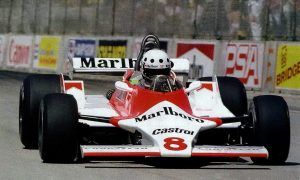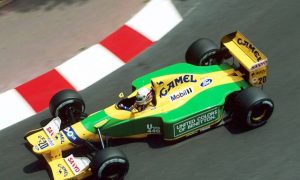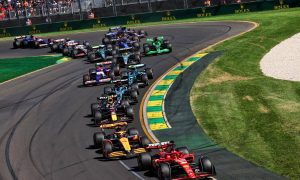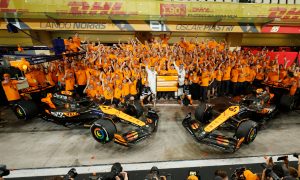In 2001, at the Italian Grand Prix Michael Schumacher wanted everyone to slow down for the first corner on the opening lap, because of the 9/11 tragedy that had just taken place in New York and because of Alex Zanardi’s terrible Indycar crash. It didn’t happen, because the idea did not get unanimous approval and quite honestly, why should the opening lap of a motor race in Italy be considered more dangerous than usual because of a terrorist attack and a bad racing accident in Germany?
Last night, the real world produced another atrocity so terrible that it managed to penetrate the hardened carapace of the Formula 1 dream world. At some point in the next few days, weeks and months we will all realise that we know someone directly affected by it, through our connections to colleagues in the French media, the Renault crew, or other French elements in our sport.
Everyone in F1 takes themselves and their work so seriously that it requires something like last night’s events in Paris to make us realise just how trivial Grand Prix racing is in the grand scheme of things: a minority interest sport, beset by political wrangling, petty squabbles and the greed of the few who control it all.
What strikes me in particular, in relation to this weekend’s hot topics in Brazil, is that it makes the opprobrium heaped on Lewis Hamilton, for what was a trivial road traffic accident in which no one was injured and his was the only car that was occupied and in motion, seem completely irrelevant and unwarranted. The way sections of the press has turned on the world champion is symptomatic of the blame culture and the trolling of celebrities that seems to have become ever more acceptable and endemic in our society.
So long as alcohol is legal, not to mention advertised prominently by several F1 teams, one can hardly blame a 30 year old triple world champion for going on the lash to celebrate his achievements, if that’s what he wants to do. But it seems everyone wants to pile in and have a pop at Hamilton, including a spokesman for a road safety charity in the UK, who used words like disappointing and foolish and claimed Lewis had let himself down and let his fans down. Really? Apart from the fact that like most F1 drivers who have put their names to road safety campaigns, Lewis was probably railroaded into it by the sport’s governing body, it really isn’t such a big deal. He wasn’t drunk, nor was he on drugs, which would definitely have been the case with some of F1’s hellraisers back in the day.
Mike Bristow of the road safety group Brake was quoted in the Daily Mail as saying “Driving tired is estimated to cause one in 10 fatal crashes. Hamilton has a choice to make: party more or drive less. He can't carry on doing both and expect to keep his road safety role.” I’ve got news for you Mike, the incident was not one of the “fatal crashes” you mention and I don’t suppose Lewis cares one way or the other, so your pious pontificating may have given you your five minutes of fame, but no one else really cares.
And just how hard has the squeaky clean Lewis been partying? If my knowledge of F1 drivers’ and other athletes’ drinking habits is anything to go by, he probably has an alcohol tolerance level on a par with a teenage girl. An athlete’s fitness regime means that two shots is usually enough to render them almost senseless. So this seems like a storm in a teacup or possibly a shot glass.
Hamilton’s Mercedes team was on shakier ground than its driver when the press were informed he would not be discussing the incident, before he went on to do precisely that. May I suggest they get a photo of the dented Zonda and use it for advertising purposes with the strapline: “This would never have happened if he’d been driving his Merc!”
LIVE: Brazilian Grand Prix weekend
Use the red tabs on either side of the screen to scroll through more Formula One news and features
Click here for Friday's gallery from the Brazilian Grand Prix
Keep up to date with all the F1 news via Facebook and Twitter









